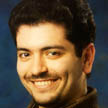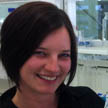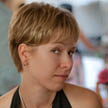I’m a Scientist is like school science lessons meet the X Factor! School students choose which scientist gets a prize of $1000 to communicate their work.
Scientists and students talk on this website. They both break down barriers, have fun and learn. But only the students get to vote.
This zone is the Organs Zone. It has scientists studying health and disease in various parts of our bodies. Who gets the prize? YOU decide!









The politics…. Scientists don’t always agree with each other. And they often don’t agree with officials that make laws and rules. So the most dangerous thing is making sure that you get along with everyone as well as possible!!
My research isn’t really terribly dangerous at the moment. But I have worked with radiation and infectious bodily fluids in the past. I had a bad moment once when I jabbed a Hepatitis positive sample straight into my finger. Luckily, I had had my vaccine and I didn’t contract Hepatitis. But it could have been much worse! When I worked with radiation, I had to scan myself and everything in the lab constantly to make sure that I wasn’t contaminating myself…or worse, tracking it out of the lab!
1
Where I work, we actually use a lot of dangerous chemicals, but we mostly use them at very low levels. We are careful that we always wear lab coats, closed shoes, goggles and have our long hair tied back to that we can protect ourselves from them. Also, we sometimes use them in a special box called a fume hood which has a vacuum that sucks away all the harmful stuff so that it doesn’t get to the scientists, or into the environment!
1
Yep. Agree with both Carina and Hannah.
The chemicals that we use and kill you from inside and out. The reason we use them is because we need to. HOW you use them is what differentiates between safe practice and you walking out of the lab as clean/healthy as you walked in. Acids and bases, radioactive, oncogenic (cancer forming) substances or solutions are all dangerous. We can’t forget about the shapes either!
The tissues/samples we look at are also dangerous. Eg Carina’s run-in. I had a similar scare working with blood samples so I totally understand. When working with animals, you can also get bitten, and that has it’s own worries.
So in summary, not dangerous at all!!!!!
1
Hi @fitzie75g – good question!
Agree with the others (Carina- well put!) it is difficult to navigate people who may not agree with you. Like school and other social situations it is important to conduct yourself the way you want others to behave.
The research we do in my lab can involve handling biological materials such as animal tissue, toxins or chemicals that are potentially harmful. Anybody who works in a laboratory must be trained properly and wear protective personal clothing (like laboratory coats, goggles and gloves during science experiments at school!). There are very strict rules that require people who work with dangerous substances to be safe so they do not expose themselves or anyone else to anything that can cause harm.
I think you also need to make sure you balance your work and life properly- often when you work as a scientist, your work can consume everything in your life. You may have a deadline to meet or need to spend many hours on a project. It’s important that you give yourself a chance to relax and see your friends/family otherwise you can become mentally or physically exhausted.
1
I too work with some dangerous chemicals. I am yet to glow however. We are all trained on how to correctly use and dispose of these chemicals and we wear loads of protective gear.
One dangerous piece of equipment that I use is called a cyrostat. A cryostat is a big cutting device for tissue and consists of a very very sharp blade attached to a handle that sits inside an extremely cold cold freezer (as cold as -27C). We secure the tissue inside the freezer and move the blade forward a fraction to slice a piece less than 0.004 cm in width. When I pick up the tissue from inside the freezer I have to be very careful not to get my fingers in between the blade and the tissue (its sharp enough to cut them off) and also to give my hands a break from being in -27C. Its a good idea to get lots of sleep the night before using the cyrostat.
1